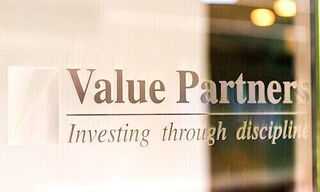The collapse of a US bank comes as no surprise in the current macroeconomic environment and the recent sharp and rapid rise in interest rates writes Beat Wittmann in a guest article for finews.asia. The collapsed Silicon Valley Bank will not be the last significant banking, corporate, or real estate casualty in 2023.
The collapse and subsequent closure of Silicon Valley Bank (SVB) in the US sent shockwaves around the globe. Against this backdrop, ten key lessons can be learned:
1. SVB's Collapse is Self-Inflicted
The collapse of SVB is self-inflicted as the bank’s leadership failed to optimally balance profitability with liquidity by not sufficiently raising deposit rates, wrongly assessing funding risk (fickle institutions vs lethargic retail investors), and misjudging the interest rate environment by investing in high-risk long term bonds and running huge book losses.
The subsequent failure to raise capital was SVB’s final blow and the rest is history.
2. Wrong Incentives are the Cause
Once again, misaligned incentives like the privatization of profits and the socialization of losses allowed the bank's leadership to act in an ultimately fatal manner. The SVB bankruptcy is largely an isolated case, but not the only one.
3. Investors and Customers Have Only Themselves to Blame
Investors and clients can only blame themselves for their misfortune. It is sufficiently clear that counterparty risks matter in a big way during a rapidly and massively tightening monetary environment. They ignored at their peril central banks that are in no mood to pivot to regain damaged credibility.
4. Back to Basics - Keep Liquidity in Safe Banks
Adhere to the «back to basics» rule. Essential cash should not be parked in non-systemically important banks. Yield versus safety are trade-offs, and you can't have it all.
5. Don't Blame the Fed
Don't shoot the messenger or policymakers. The Federal Reserve's dual mandate includes price stability and maximum sustainable employment, but not bailing out individual financial institutions and facilitating morally dangerous behavior by bank executives taking inappropriate risks.
6. Don't Expect a Bailout
In any major bank failure, the response and actions of policymakers play a decisive role. A government bailout with taxpayer money is, rightly, an absolute no-go, particularly in a year before a presidential election, and especially if it is not a systemically important bank.
The optimal solution is a successful FDIC-led auction leading to a substantial and credible financial institution acquiring SVB and assuring continuity for clients and counterparties.
7. Control Contagion Risk
US policymakers will be anxious to avoid a bank run, contagion risk, and a general loss of trust. Trust, trust, trust is a sine qua non in banking, but not enough. It has to be coupled with transparency, accountability, and alignment of interests.
The collapse of the SVB will lead to intense scrutiny of small and mid-sized banks which, ironically, will lead to accelerated capital and asset outflows into large systemically important banks.
8. Active Management and Selectivity are Crucial
Continued tight monetary policy and the lagging effect of significantly higher interest rates will break more weak links and lead to further losses in financial institutions, corporations, and real estate.
Consequently, investors will be more sensitive to liquidity and solvency risks, and the dispersion of returns and risks between winners and losers will widen. Consequently, active management, selectivity, and individual tailoring will be key to performance success.
9. European Banks Particularly Exposed
European banks have performed well recently, benefiting from not passing higher interest rates on to their customers and from not experiencing major loan defaults so far.
European banks remain significantly more vulnerable and structurally less attractive than US banks. Investors should continue to avoid the weakest European banks with the lowest valuations, worst share price performance, and lowest credit ratings.
10. Investment Conclusion: Flight to Safety and Contrarian Risk Appetite
The first reaction of capital markets to a major banking collapse is increased volatility, risk aversion, and flight to safety. At the same time, it is extremely attractive to take advantage of optimal entry points in quality stocks. The US financial sector is extremely competitive. It can continue to be highly rewarding for shareholders in the future.
Beat Wittmann has been Chairman and Partner of the Zurich-based financial advisory firm Porta Advisors for more than seven years. The native of Grisons looks back on a career spanning over three decades in Swiss banking, which took him to Swiss banks UBS and Credit Suisse as well as Clariden Leu and Julius Baer, among others. From 2009 to 2015, he worked independently and then for the Swiss Raiffeisen Group in asset management.


























